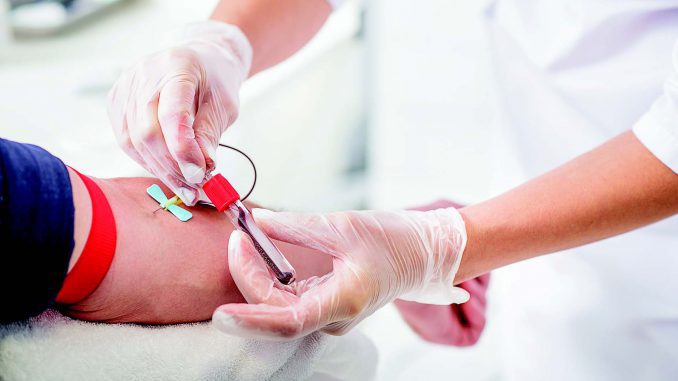
[Written by Thomas LaPorta, Interim Laboratory Director/Microbiology Line Manager; Patricia Belair, MD, Medical Director; Dalia Eldeiry, MD, Medical Director; and Jose Halder, Manager – Central Receiving and Patient Service Centers.]
Blood tests are one of the most important tools health care providers use to get a snapshot of your health. There are countless reasons why bloodwork is done, but it’s often requested during your annual physical, before a surgery, or if you have any changes to your health.
Blood tests are used to:
- Monitor your current health.
- Catch cancers or other diseases early.
- Determine whether your medication treatments are working.
- Show irregularities in your organs.
- Diagnose chronic diseases.
- Set a baseline for what is normal for you.
Some of the most common tests include:
Complete Blood Count (CBC) – checks amount of white and red blood cells and platelets to help look for things like infections, causes of tiredness or weakness, immune system disorders, vitamin deficiencies, blood cancers, and clotting problems.
Basic Metabolic Panel (BMP) – checks compounds in your blood, your metabolism, and kidney function. Abnormal results could indicate kidney disease, diabetes, electrolyte imbalances, and other issues.
Comprehensive Metabolic Panel (CMP) – measures everything the BMP does, plus other proteins and liver enzymes. This test can diagnose things like gallstones, mononucleosis, hepatitis, and liver cancer/damage.
Lipid Panel – measures the amount of fat molecules (lipids) in your blood. It looks at your high-density lipoprotein (HDL), or “good cholesterol,” and low-density lipoprotein (LDL), or “bad cholesterol.”
Thyroid Panel – checks your thyroid function and how it reacts to hormones and proteins in your body. It can detect hypothyroidism (underactive thyroid) and hyperthyroidism (overactive thyroid).
C-reactive Protein (CRP) Test – measures the level of CRP in your blood to help determine your risk of heart disease. It shows inflammation in your body from things like autoimmune diseases, trauma, and infections.
This is just a sampling of blood tests commonly performed. For some tests, you may be required to fast (refrain from eating/drinking) for a certain amount of time before your test so your results are not influenced by the proteins, vitamins, and other nutrients in your body. Your lab report will indicate whether your result is low, normal, or high compared to the lab’s reference range, and will help your provider plan the next steps of your care.
Health experts recommend you have your blood work done once a year with your annual checkup; and more often if you have a pre-existing condition or new health issue. Follow the guidance of your primary care provider.
St. Peter’s Health Partners has fourteen lab draw sites across the Capital Region. Walk-ins are welcome or you can schedule an appointment through the MyChart app or online at www.sphp.com/mychart.
If you have questions about your scripts or other needs not related to scheduling an appointment, you can reach any SPHP draw site by calling 518-525-1475, Monday – Friday from 7 a.m. to 5 p.m., and Saturdays from 6:30 a.m. to noon. You can also visit us at www.sphp.com/Lab.


